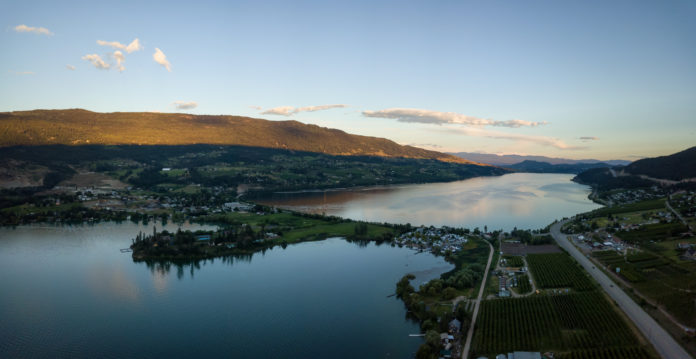
The latest community to report success with attracting newcomers through the Rural & Northern Immigration Pilot (RNIP) is Vernon in British Columbia.
A year after launching its application process for the pilot, the northern B.C. community has issued 29 community recommendations for candidates to apply for permanent residency to the Canadian federal government.
Although Vernon has an annual allocation limit of 100 recommendations, issuing 29 in the first year of the pilot is a significant step forward.
As well as the federal requirements for the pilot (listed below), Vernon lists specific candidate requirements, as well as its own version of the Comprehensive Ranking System, similar to the federal Express Entry system.
Read More
Early Success in Attracting Immigrants For Canada’s Rural and Northern Immigration Pilot
Canada Relaxes Work Experience Requirement For Rural & Northern Immigration Pilot
Rural & Northern Immigration Pilot: Moose Jaw Publishes First Details
Vernon Community-Specific Candidate Requirements
- Canadian Language Benchmark (CLB) of 5 or higher, in English or French, for all skill levels.
- Have completed a profile on the RNIP Vernon website.
The Vernon Comprehensive Ranking System (VCRS) allows candidates to score up to 100 points on a range of factors including:
- Language
- Family connections in Vernon
- Previous travel, time spent and property owned in Vernon
- Work or study experience in Vernon,
- General work experience,
- Spouse or partner’s work experience,
- Age,
- Wage offered,
- Whether they hold a driver’s licence.
Vernon has an annual allocation of 100 recommendations for candidates through the RNIP.
The majority of candidates must have a job offer with wages of at least $25 per hour to qualify. However, 10 percent of recommendations with be exempt from this requirement, provided the wage offered is between $20 and $24.99 per hour, and they score a minimum of 65 points on the VCRS.
“Applicants who are currently working, studying, and/or residing for at least the last 12 months in the community will be exempt from the community-specific wage criteria,” the Vernon website says.
RNIP Federal Government Eligibility Requirements
1) Work Experience/International Student Exemption
Candidates must have qualifying work experience or have graduated from a publicly-funded post-secondary institution in the recommending community.
Work Experience
Candidates must have one year of continuous full or part-time work experience (1,560 hours) in the last three years. The work experience must be in one occupation and must include most of the main duties and all of the essential duties listed in the National Occupational Classification (NOC).
International Students
Candidate who are international students are exempt from needing work experience provided they meet the following requirements:
Scenario 1
- They graduated with a credential from a minimum two-year-long post-secondary program in the recommending community.
- They were studying as a full-time student for the full duration of the two or more years.
- They received the credential no more than 18 months before the date of application for permanent residence.
- They were in the community for at least 16 of the last 24 months spent studying to get the credential.
Scenario 2
- They graduate with a master’s degree or higher
- They studied as a full-time student for the duration of the degree in the recommending community.
- They received the degree no more than 18 months before the date of application for permanent residence.
- They were in the community for the length of their studies.
2) Language Requirements
Candidates must meet the Canadian Language Benchmarks (CLB) or Niveaux de compétence Linguistique canadiens (NCLC) based on the National Occupational Classification of their job.
The minimum language requirements for each NOC category are
- NOC 0 and A: CLB/NCLC 6
- NOC B: CLB/NCLC 5
- NOC C and D: CLB/NCLC 4
3) Educational Requirements
Candidates must have a Canadian high school diploma or an equivalent foreign credential with an accredited educational credential assessment (ECA) report.
4) Settlement Funds
Candidates must prove they have enough money to support themselves and their family members while they get settled in their community. This includes family members who may not be coming to Canada.
Candidates already working legally in Canada are exempt from settlement fund requirements.
| Number of family members | Funds you need (in Canadian dollars) |
| 1 | $8,722 |
| 2 | $10,858 |
| 3 | $13,348 |
| 4 | $16,206 |
| 5 | $18,380 |
| 6 | $20,731 |
| 7 or more | $23,080 |
5) Intention to Reside
To participate in the pilot, you must plan to live in the community.
RNIP Participating Communities
| Community | Community website |
| North Bay, ON | www.northbayrnip.ca |
| Sudbury, ON | www.investsudbury.ca/how-can-we-help/immigration-options/ |
| Timmins, ON | Timmins RNIP |
| Sault Ste. Marie, ON | www.welcometossm.com |
| Thunder Bay, ON | www.gothunderbay.com |
| Brandon, MB | www.economicdevelopmentbrandon.com |
| Altona/Rhineland, MB | www.seedrgpa.com |
| Moose Jaw, SK | www.moosejawrnip.ca |
| Claresholm, AB | www.claresholm.ca/rural-northern-immigration-pilot |
| Vernon, BC | www.rnip-vernon.ca |
| West Kootenay (Trail, Castlegar, Rossland, Nelson), BC | www.wk-rnip.ca |

